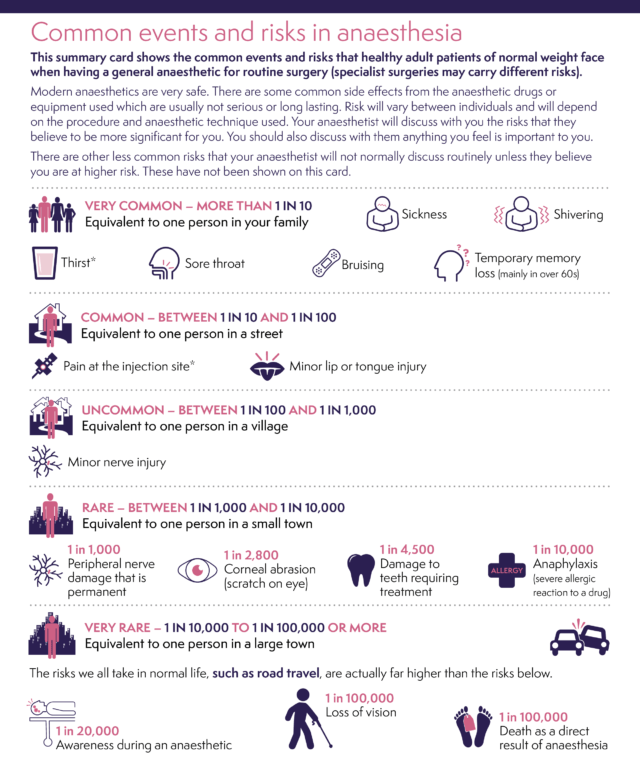Anaesthetic Risk
Risk refers to the likelihood of harm resulting from a hazard. It is the probability of an event within a population during a specified period of time. Risk is an inherent part of life such as crossing a road, swimming in the society’s pool or even eating some things. In medical treatment, this event is generally a negative outcome like injury or death.
Undergoing Surgery under Anaesthesia
Like all medical treatments, surgery and anaesthesia have some risk associated with them. This risk is influenced by a variety of factors that may be related to
- the surgery itself,
- the anaesthesia or
- the presence of pre-existing or co-morbid disease/s.
- other reasons like Human behaviour, team performance, equipment, fatigue, setting, and experience
Risk varies between individuals and is typically relative. For example, if you have a heart condition, and need non-cardiac surgery, you are at greater risk for complications than another person who is like you in every way except that they don’t have a heart condition.
Anaesthetic Risk
Modern Anaesthetics are very safe. There are a few side effects from drugs and equipment that are common but these are neither serious nor long-lasting.
Your anaesthetist will discuss with you the risks that they believe to be more significant for you. If you have any questions, please ask your anaesthesiologist. Less common risks are generally not discussed unless your anaesthesiologist feels that they may be especially relevant to you.
The following infographic, made by the Royal College of Anaesthetists, London, United Kingdom, explains risks during anaesthesia.


